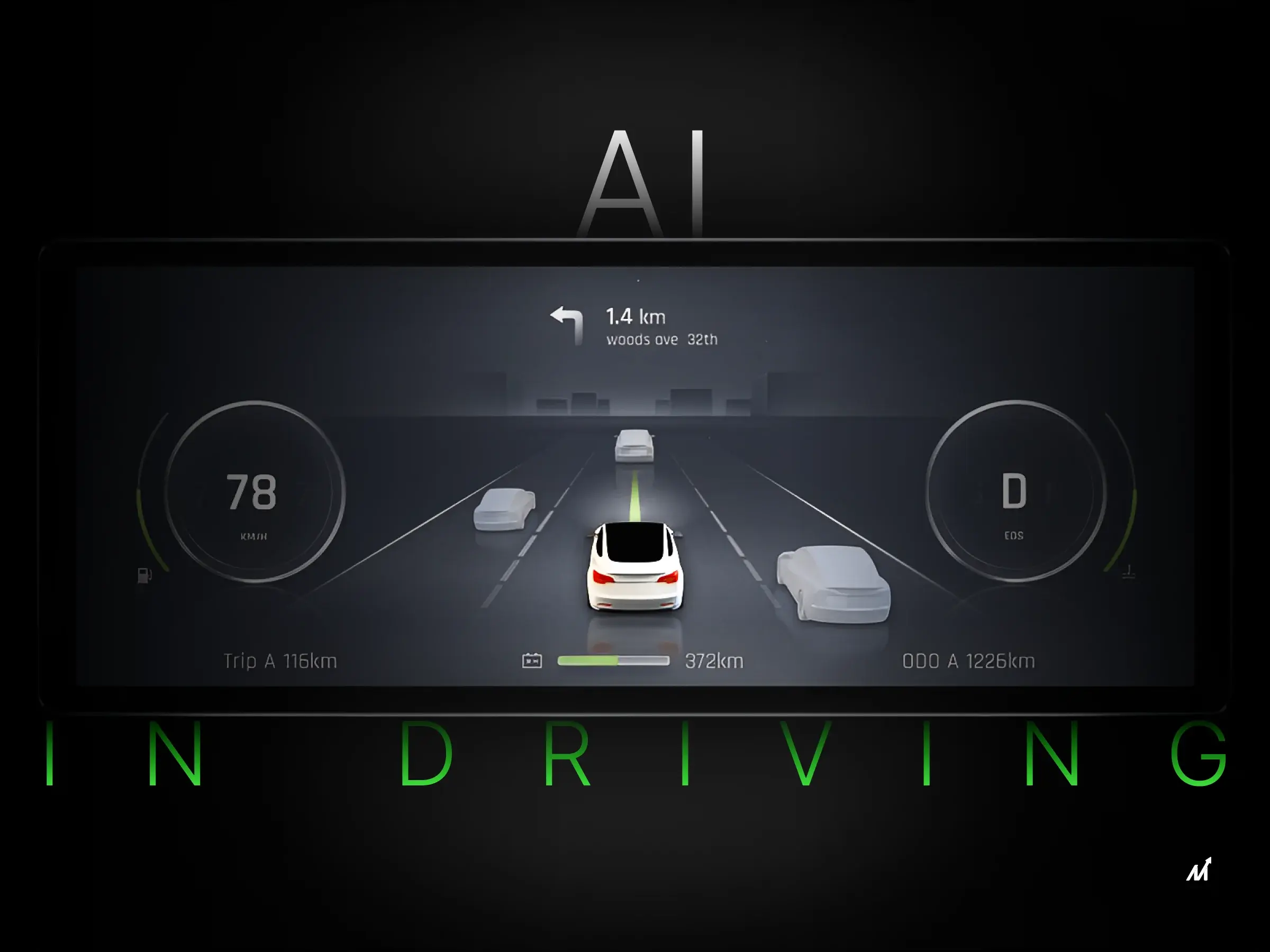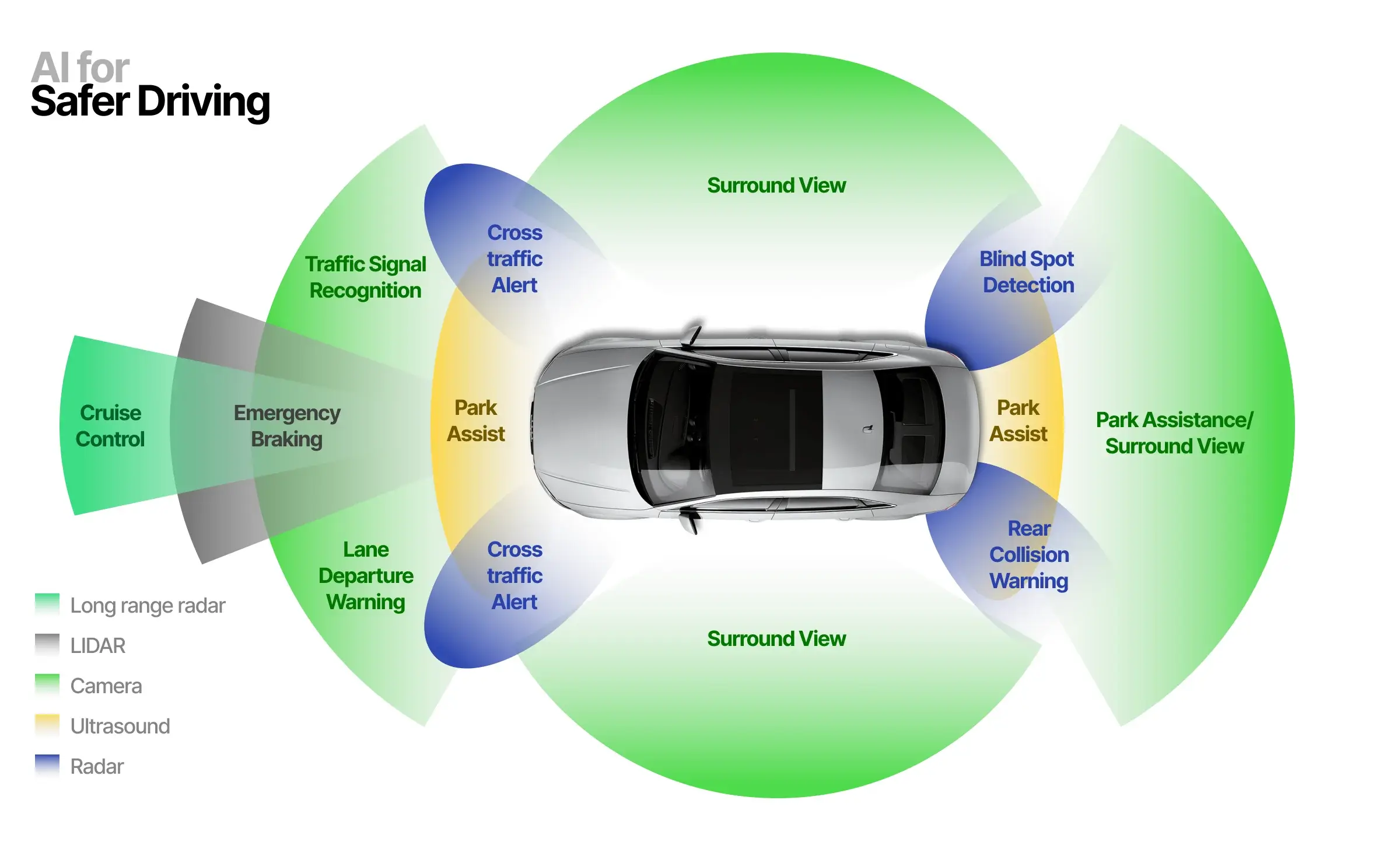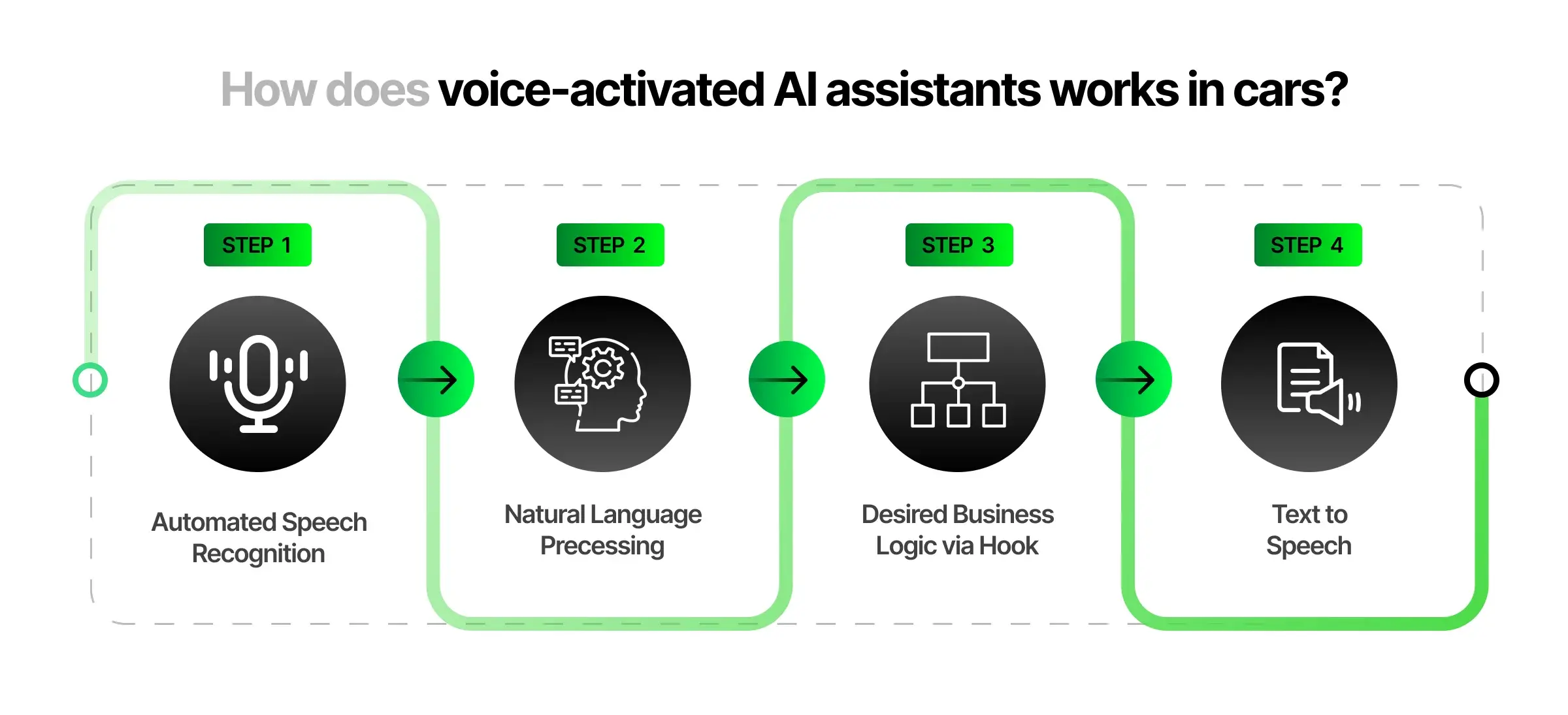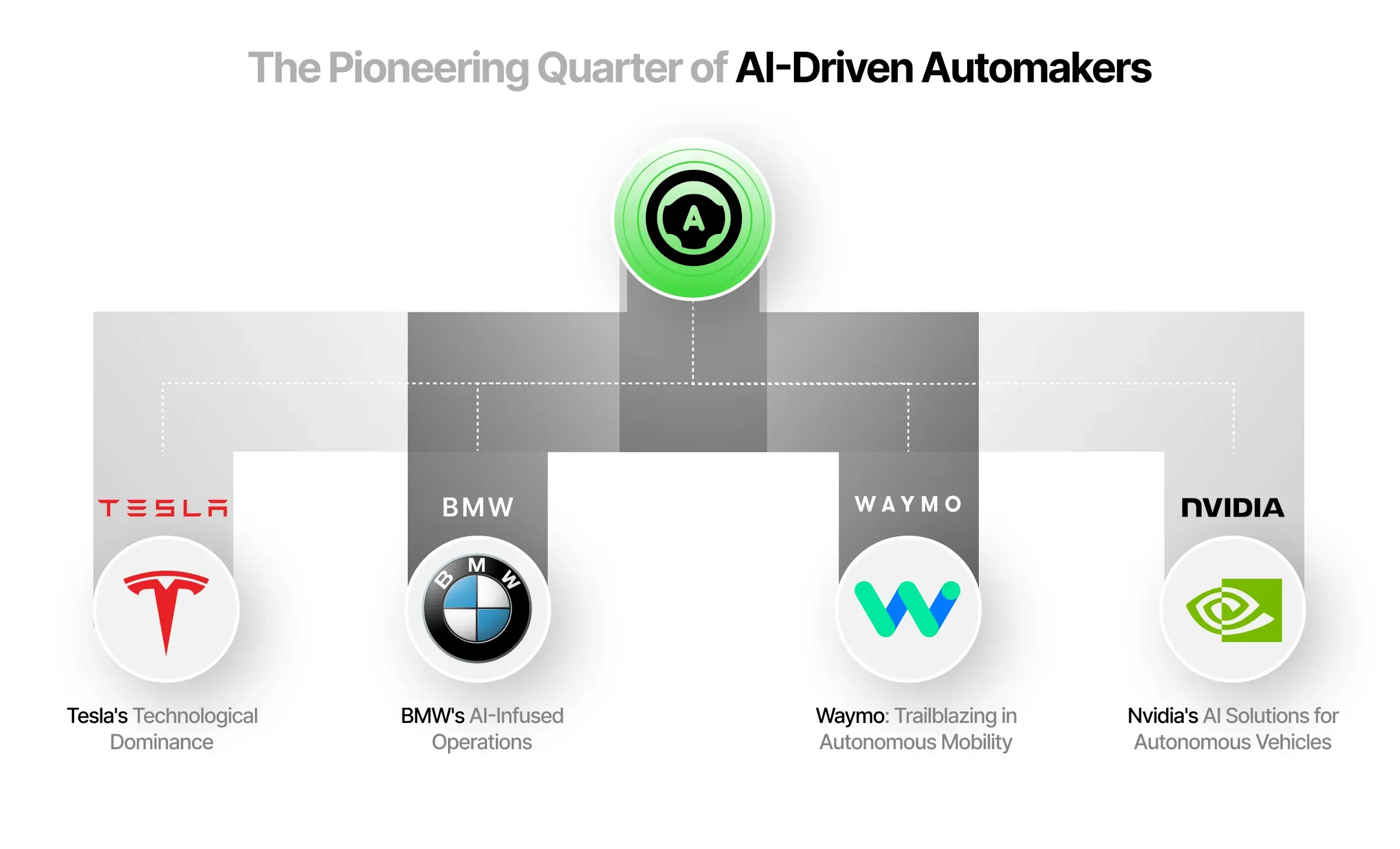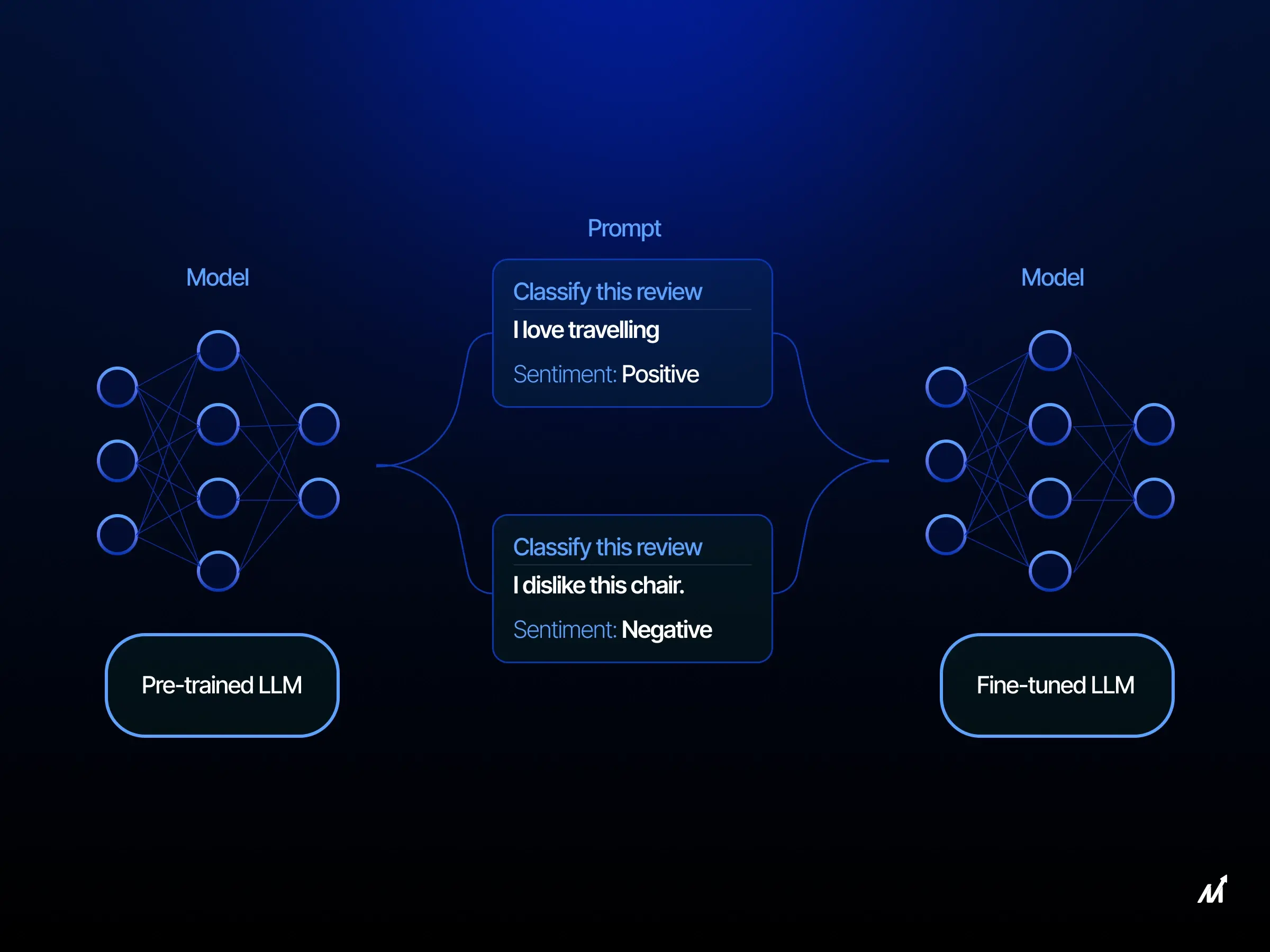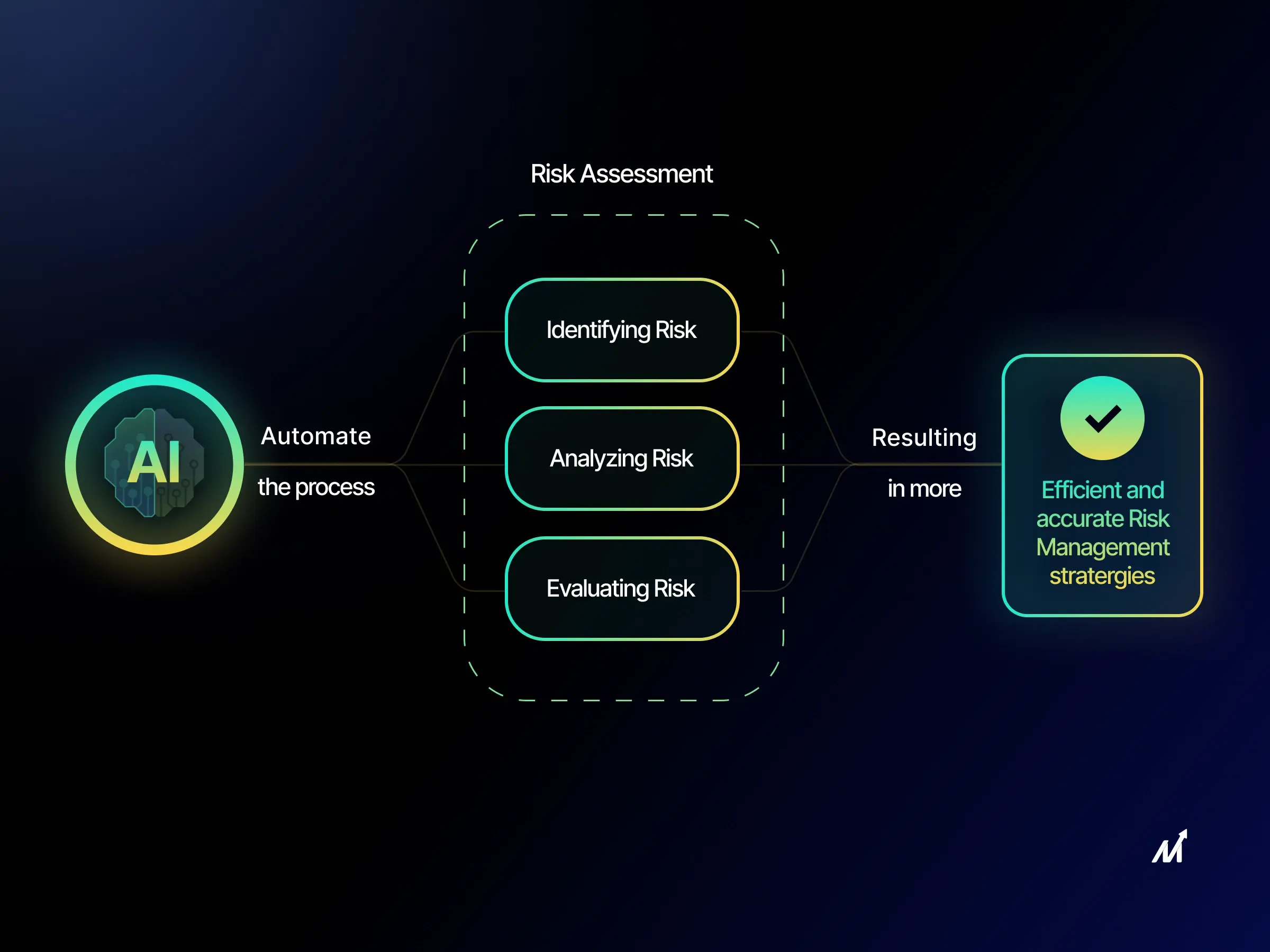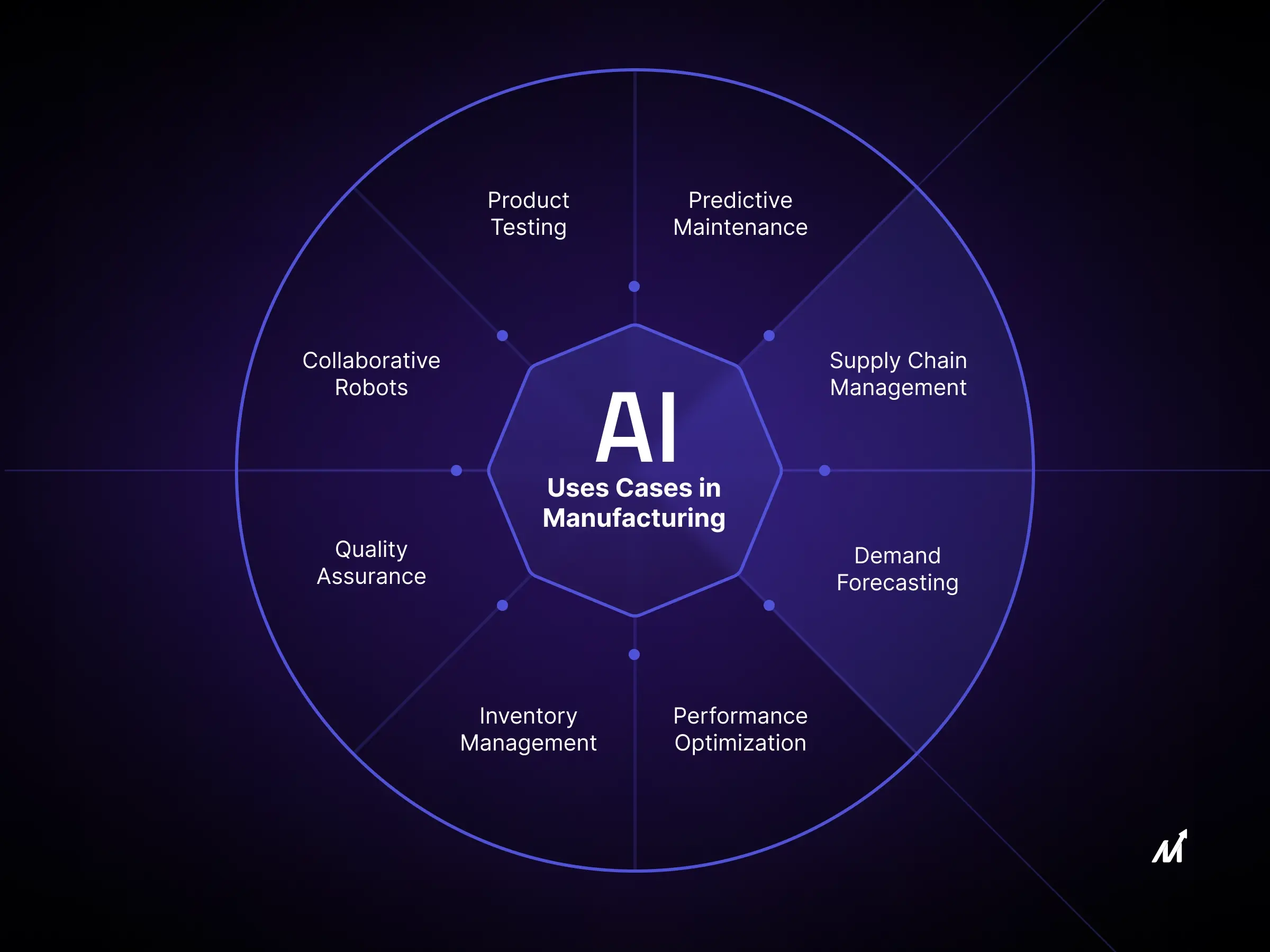In the automotive sector, artificial intelligence (AI) is revolutionizing more than just self-driving technology. It’s enhancing design, production, supply chains, customer service, and mobility services. The experts have their calculators out, and they’re predicting wild growth in Artificial Intelligence in the automotive industry – we’re talking about a nearly 40% jump every year! By 2027, it’s expected to balloon to a massive $15.9 billion industry. Let’s delve into some technological advancements AI is bringing to the industry:
Automotive Businesses are Taking AI Seriously
- General Motors has implemented “Dreamcatcher,” a system utilizing machine learning. This tech marvel was instrumental in redesigning a seatbelt bracket, resulting in a single-piece design. This new design is not only 40% lighter but also 20% stronger than the original, which comprised eight separate components.
- Continental, a leader in automotive parts, has innovated with an AI-driven virtual simulation tool. Moreover, this advanced system is capable of generating 5,000 miles worth of vehicle testing data in just one hour. To put this in perspective, achieving the same results through traditional physical testing methods would typically take over 20 days.
- Volkswagen, in a forward-thinking move, formed a speech technology team at its DATA: LAB in Munich in 2017. This team’s focus is on enhancing communication with suppliers for transactions below $10,000, utilizing AI to streamline and improve the efficiency of these procurement processes.
- Škoda is testing autonomous drones for inventory management at its facility in Mladá Boleslav, Czechia. These drones, equipped with sophisticated recognition technology, survey the storage area three times daily to track and count empty containers, automating and improving accuracy in inventory management.
Each of these instances illustrates the transformative impact of AI in the automotive industry, driving innovation and efficiency across various domains.
Now let’s understand the most popular applications of AI in the automotive industry and what benefits businesses get out of it.
Major AI Applications & it’s Benefits in the Automotive Industry
In this section, we will examine key AI-driven solutions that significantly impact efficiency, customer satisfaction, and profitability in the automotive sector. This overview provides insights into how AI technology is innovating and optimizing various aspects of the automotive industry.
1. Enhanced Driving Support Systems
Driving support systems powered by Artificial Intelligence (AI), offer a robust solution to the critical issue of road safety. These systems utilize a sophisticated blend of sensor technologies, including LIDAR (Light Detection and Ranging), radar, and high-resolution cameras, combined with advanced AI algorithms. The AI processes real-time data from these sensors to perform critical functions like automatic emergency braking, lane-keeping assistance, and adaptive cruise control. This technology is particularly effective in mitigating accidents caused by human errors like distraction or poor judgment. For businesses, the incorporation of such AI-driven safety features not only meets the growing consumer demand for safer vehicles but also positions them as industry leaders in technological innovation. The increased safety features can lead to higher sales volumes, improved brand loyalty, and potentially lower insurance costs for end-users, enhancing overall market competitiveness.
2. Self-Navigating Automobiles
Self-navigating automobiles equipped with AI are at the forefront of addressing the significant challenge of driver error, a leading cause of road accidents. Moreover, these vehicles are outfitted with an array of technologies, including GPS systems, onboard sensors, and advanced AI algorithms capable of machine learning and real-time decision-making. This AI system processes vast amounts of data from its surroundings to navigate roads, recognize traffic signals, and make split-second decisions, replicating human driving capabilities without the risk of human error. Consequently, the impact on businesses in the automotive sector is profound. Self-navigating cars represent a new frontier in automotive engineering, offering an innovative solution to challenges in mobility, especially for individuals unable to drive. They also open up new business models, such as shared autonomous vehicle services, and present opportunities for partnerships with technology providers and urban planners.
3. Driver Identity and Condition Analysis
Driver identity and condition analysis systems in vehicles leverage AI to enhance both safety and the personal driving experience. Employing facial recognition and biometric sensing technologies, these systems identify the driver and adjust the vehicle’s internal settings – like seat positioning, mirror angles, and even the infotainment system preferences – accordingly. More crucially, they use AI algorithms to monitor the driver’s attentiveness, detecting signs of fatigue or distraction. This technology plays a critical role in preventing accidents caused by driver inattention, a common issue in road safety. For automotive businesses, incorporating such AI systems translates into a unique selling proposition, offering customers a blend of personalized comfort and enhanced safety. It also opens up opportunities for gathering valuable data on driving patterns and preferences, which can be used for future vehicle improvements and personalized marketing strategies.
4. AI in Automotive Manufacturing
AI’s role in revolutionizing automotive manufacturing is significant, offering solutions to longstanding challenges of efficiency and quality control. AI-powered robots and machine learning algorithms are now integral in various manufacturing processes, such as precision assembly, painting, and quality inspection. Kia Motors incorporated the Hyundai Vest Exoskeleton (H-VEX) in its production lines in 2018. This AI-assisted wearable robot helps workers by reducing the risk of injuries. Automated Guided Vehicles (AGVs) in factories autonomously transport materials, efficiently navigating around obstacles.
In 2020, the Volkswagen Group assessed the sustainability practices of over 13,000 suppliers, ensuring compliance through AI-powered audits. Additionally, the AI systems are capable of learning and adapting, continuously improving their efficiency and accuracy. The result is a noticeable reduction in production times and errors, leading to cost savings and higher-quality products. For automotive businesses, the adoption of AI in manufacturing not only enhances productivity but also enables a more agile response to market demands and trends. This technological advancement is a key factor in maintaining a competitive edge, as it allows for the production of more complex and technologically advanced vehicles without a corresponding increase in cost or production time.
5. Voice-Activated Personal Assistants
Voice-activated personal assistants in vehicles driven by AI are transforming driver and passenger interactions with their vehicles. Moreover, utilizing natural language processing (NLP) and advanced voice recognition technologies, these AI systems enable drivers to control various car functions. They can manage navigation, entertainment, and climate control through voice commands. This hands-free operation significantly reduces driver distraction, a key factor in road accidents. For automotive businesses, integrating these AI assistants offers a compelling feature to tech-savvy consumers, enhancing the vehicle’s appeal. It also paves the way for more intuitive and interactive in-car experiences, which can be a crucial differentiator in a market where convenience and technology are increasingly valued.
6. Enhancing Passenger Experience
AI is revolutionizing the passenger experience in vehicles by introducing advanced entertainment and comfort features. AI-powered infotainment systems can learn a passenger’s preferences over time, suggesting music choices or navigation routes. Additionally, AI can control climate settings and even adjust seating based on the passenger’s comfort preferences. For example, The Porsche Car Configurator, powered by AI, allows customers to choose from billions of vehicle configurations, simplifying the decision-making process, especially for luxury cars. For businesses in the automotive sector, offering such AI-enhanced features can significantly boost the appeal of their vehicles. It caters to the growing consumer demand for personalized and comfortable travel experiences, particularly in the luxury car segment. This not only aids in customer retention but also attracts new customers looking for a more connected and personalized vehicle experience.
7. AI in Supply Chain Management
The complexity of building a car involves around 30,000 parts from different global suppliers. Furthermore, AI-driven supply chain management systems use predictive analytics and machine learning to optimize inventory levels, forecast demand, and streamline logistics. As a result, supply chain operations become more efficient and cost-effective, reducing waste and improving timely part delivery. AI helps in predicting and managing these intricate supply chains to avoid costly delays. Audi, for example, uses AI to ensure that its suppliers adhere to strict quality standards. For automotive companies, efficient supply chain management is crucial for maintaining profitability and customer satisfaction. AI in this area allows these companies to respond more quickly to market changes and customer demands, enhancing their agility and resilience in a dynamic market.
8. AI in Automotive Insurance
The use of AI in automotive insurance offers a faster, more accurate process for claims and assessments. Additionally, technologies like machine learning and computer vision are used to analyze vehicle damage, speeding up claim processing and improving accuracy in damage assessment. This streamlines the insurance process for customers, leading to increased satisfaction. Additionally, for automotive businesses, partnering with insurance providers that utilize AI technology can be a significant value-add, offering customers a more seamless post-purchase experience. It also helps in building a reputation for customer-centricity and innovation.
9. Quality Control in Vehicle Manufacturing
AI-driven quality control in vehicle manufacturing uses technologies like machine vision and predictive analytics to identify and rectify defects at various stages of the production process. AI excels in identifying potential errors at their inception or even foreseeing them before they manifest. This preemptive detection allows for timely resolution, preventing minor issues from escalating into expensive repairs. Moreover, this level of precision in quality control is paramount for ensuring the reliability and safety of vehicles.
For automotive companies, this means a reduction in costly recalls and a boost in consumer confidence in their products. For instance, Audi employs computer vision to detect flaws in sheet metal, preventing defective parts from leaving the factory. Porsche’s AI-powered digital assistant, “Sounce,” uses deep learning to detect unusual noises during vehicle tests, streamlining the quality assurance process and reducing manual labor. Implementing AI in quality control safeguards the brand reputation but also ensures compliance with increasingly stringent safety regulations, a crucial aspect for businesses in the automotive sector.
10. Connected Cars with AI Technology
Connected cars, powered by AI and Internet of Things (IoT) technologies, represent a significant advancement in vehicle technology. Moreover, these cars can communicate with each other, with traffic systems, and with other devices, providing real-time data on traffic conditions, potential hazards, and vehicle performance. This interconnectedness leads to more efficient, safe, and enjoyable driving experiences. For automotive companies, developing connected cars is an opportunity to lead in the arena of smart mobility solutions. It aligns with the increasing consumer demand for vehicles that are not only environmentally friendly but also integrated with the broader digital ecosystem.
11. AI in Automotive Design
AI in automotive design is reshaping the way vehicles are conceptualized and brought to life. Furthermore, tools powered by AI assist designers in creating more aerodynamic designs, optimizing material usage, and even conducting virtual simulations, like crash tests. This reduces the time and resources spent in the design phase, allowing for quicker AI development cycles. For automotive businesses, employing AI in the design process enables the creation of more innovative and appealing vehicle models, meeting consumer demands for both functionality and aesthetics. This use of AI positions these companies at the forefront of automotive design, offering a competitive advantage in a market that values innovation and style.
Despite several major benefits, adopting AI in the automotive industry is not easy. Let’s understand the key challenges.
Integrating AI in Automotive Manufacturing: Key Considerations
The integration of Artificial Intelligence (AI) in the automotive industry is a complex endeavor, marked by several critical factors that must be addressed for successful implementation.
1. Comprehensive Data Management
The cornerstone of AI integration in automotive manufacturing is the effective handling of diverse data. This data originates from multiple sources, each presenting its own set of challenges:
1.1 Managing Data Originating from Multiple Sources: The automotive industry collects data from a myriad of sources: sensors on the production line, feedback from quality control systems, and input from customer interactions. This data is crucial for AI-driven processes but is often scattered and inconsistent.
1.2 Standardizing Diverse Data Formats: Data collected in the automotive industry varies significantly in format and structure. It ranges from numerical data from sensors to unstructured feedback from customers. Harmonizing these disparate data types into a uniform format suitable for AI analysis is a complex but necessary task.
1.3 Ensuring Data Quality: The accuracy, completeness, and consistency of data are paramount. Moreover, high-quality data is a non-negotiable requirement for AI systems, as it directly influences decision-making accuracy and operational efficiency.
1.4 Overcoming Data Silos: Data often exists in isolated pockets within different departments or systems, creating ‘silos’. Therefore, integrating these silos to create a unified data ecosystem is crucial for maximizing AI potential. Achieving this requires overcoming significant interoperability and integration challenges.
2. Data Privacy and Security Concerns
The automotive industry handles sensitive data, necessitating rigorous privacy and security measures.
2.1 Adhering to Privacy Regulations: Compliance with privacy laws such as GDPR is critical. This involves implementing robust measures for handling personal and sensitive data, especially in systems integrated into vehicles, to protect user privacy.
2.2 Fortifying Data Against Cyber Threats: With AI systems heavily reliant on data, the risk of cyberattacks is a major concern. Therefore, ensuring data security through encryption, controlled access, and regular security audits is essential to prevent unauthorized access and maintain data integrity.
3. Infrastructure and Resource
Allocation Implementing AI in automotive manufacturing demands a solid infrastructure foundation.
3.1 Scaling Data Storage Solutions: The need for large-scale data storage solutions is paramount. Consequently, manufacturers must invest in scalable storage infrastructures, including cloud services, to ensure data is securely stored and readily accessible for AI processes.
3.2 Enhancing Network Capabilities: AI systems require a robust network infrastructure to facilitate real-time data streaming and efficient communication between different components of the manufacturing process. Therefore, this necessitates investing in high-speed, low-latency networks to support seamless data flow and timely decision-making.
4. Workforce Skill Enhancement
A well-trained workforce is essential for effective AI integration.
4.1 Addressing the AI Skills Gap: The integration of AI in manufacturing often reveals a gap in necessary skills among the workforce. Consequently, addressing this requires targeted training programs and the development of a learning culture that encourages continuous skill enhancement.
4.2 Promoting Cross-Functional Collaboration: Effective AI adoption in the automotive sector calls for collaboration between data scientists, AI consultants, and industry experts. Moreover, encouraging cross-functional teams and fostering a culture of innovation is crucial for successfully harnessing AI capabilities.
With the right expert on your side, businesses can easily overcome these challenges. Next, let’s dig deep and discover which automakers are the the forefront of adopting AI.
The Pioneering Quartet of AI-Driven Automakers
These automotive enterprises are leading the way in embracing AI, recognizing its substantial potential.
1. Tesla’s Technological Dominance
Tesla has become almost synonymous with the modern electric vehicle. Still, it’s their use of AI that truly sets them apart. How? By integrating advanced AI, Tesla has elevated autonomous driving to new heights. The AI used in Tesla’s fleet isn’t just about navigating from point A to B; it’s about understanding and reacting to dynamic road conditions in real time, making split-second decisions for safety and efficiency. Why is this important? For businesses in the automotive sector, Tesla’s model showcases the potential of AI to not only enhance driver experience but also to push the boundaries of what we consider possible in vehicle autonomy.
2. BMW’s AI-Infused Operations
BMW’s approach demonstrates the versatility of AI applications in the automotive industry. By embedding approximately 400 AI applications, BMW has streamlined everything from the initial concept of a vehicle to its energy consumption. But why does this matter? For one, it shows how AI can be a game-changer in operational efficiency and sustainable practices. Furthermore, BMW’s implementation of AI in in-car assistants and autonomous driving efforts underlines the potential for creating a more personalized, responsive driving experience.
3. Waymo: Trailblazing in Autonomous Mobility
Waymo stands out for its commitment to AI-driven autonomous driving technologies. Their use of AI extends beyond passenger vehicles to include delivery vans, taxis, and tractor-trailers. The key here is the diversity in application – demonstrating that AI’s potential in the automotive industry isn’t limited to personal cars but spans a wide range of vehicles. For businesses, Waymo’s model is a valuable case study in scaling AI technologies across different vehicle types and services, highlighting the expansive reach of AI in transforming mobility.
4. Nvidia’s AI Solutions for Autonomous Vehicles
Nvidia’s role in the automotive AI revolution is pivotal. Additionally, they specialize in processing complex sensor data, a fundamental aspect of autonomous vehicle technology. This involves interpreting input from various sensors and cameras, allowing vehicles to ‘understand’ their surroundings. What is the significance for businesses? Nvidia’s work exemplifies how AI can enhance safety features and develop smarter vehicles. Their progress points to the importance of AI in advancing not just autonomous driving but also in improving vehicle responsiveness to environmental variables, thus enhancing overall road safety.
AI in Automotive: Future Outlook
In the upcoming years, the automotive industry is set to undergo significant changes due to artificial intelligence (AI). The most prominent shift will be towards autonomous driving and enhanced vehicle intelligence. Furthermore, Tesla’s progress in autopilot and smart navigation is a precursor to a broader trend where AI-driven functionalities become standard in vehicles, enhancing safety and driving efficiency.
The implementation of AI is expanding beyond driving capabilities. Additionally, BMW’s integration of AI-based voice assistants is an early example of vehicles becoming more interactive and responsive, catering to driver preferences with greater precision. Audi’s application of computer vision in manufacturing illustrates a move towards more meticulous quality control and production excellence.
Collaborations like the one between Mercedes-Benz and Bosch, focusing on higher-level autonomous vehicles, signal a move towards more sophisticated and dependable autonomous driving technologies. This transformation will likely extend to various facets of the automotive sector, including manufacturing processes, supply chain management, and customer service, improving overall efficiency and customer engagement.
By the decade’s end, a significant increase in AI-enabled vehicles is anticipated, potentially making manual driving an occasional choice. Furthermore, the automotive intelligence market, already substantial at over $26 billion in 2022, is expected to see considerable growth, potentially reaching $74.5 billion by 2030. This increase indicates a growing demand and investment in AI technologies in the automotive field.
(Also read our blog on AI in Logistics)
Rev Up Your Automotive Business with Markovate
Markovate specializes in developing AI solutions that address specific business needs. Our approach towards the automotive sector combines deep industry knowledge with advanced AI capabilities to create solutions that are both innovative and practical.
Our AI in Automotive Solutions
Key solutions we can build for the automotive industry include (but are not limited to):
1. AI-Driven Conversion Rate Improvement:
Tailored for marketing optimization, this AI solution analyzes campaign data against competitors to enhance marketing strategies. Consequently, it directly impacts ROI and conversion rates.
2. AI Vehicle Customizer:
A customer-centric AI solution that uses driving data to suggest vehicle configurations. Thus, it enhances the buyer’s journey by providing personalized recommendations, thereby increasing customer engagement and sales.
3. Strategic Cross-Selling Facilitator:
This AI solution empowers sales teams at the point of sale. Additionally, by aligning product offerings with customer preferences, it facilitates effective cross-selling, boosting profitability and customer satisfaction.
4. Inventory Optimization System:
Designed for dealers, this tool manages inventory by aligning stock with local demand. It ensures optimal inventory levels, preventing overstocking and lost sales, thus enhancing operational efficiency.
5. Supply Chain AI Monitor:
An AI tool for proactive supply chain management. Moreover, it monitors production activities to anticipate and mitigate disruptions, maintaining uninterrupted operations and reducing downtime costs.
6. Local Market AI Analytics:
This solution provides dealers with actionable insights into local markets. Therefore, it enables them to tailor their sales strategies and increase performance in their specific locales.
7. Quality and Waste Reduction Optimizer:
Targeted at manufacturers, this AI tool optimizes production parameters to reduce waste and enhance product quality. Additionally, it leads to cost savings and improved manufacturing efficiency.
8. Product Reliability AI:
An AI solution that quickly identifies and addresses product issues. Consequently, this reduces the time to implement corrections and enhancing customer trust through improved product reliability.
9. Aftersales Inventory Management System:
This tool improves inventory management in after-sales. Additionally, it enhances turnover rates, reducing capital and logistic costs, and improving customer service efficiency.
With Markovate, you’re gaining a strategic partner who understands the intricacies of the automotive sector. Additionally, we work closely with you to ensure that the AI solutions we develop are innovative, practical, and directly aligned with your business objectives. Schedule a consultation with the Markovate team today to learn more about AI solutions we can build for your business.
Most Frequently Asked Questions About AI in Automotive
1. What Does AI’s Role in Automotive Advancements Mean for My Business?
AI’s role in the automotive industry can be a game-changer for your business. Moreover, it involves leveraging machine learning, natural language processing (NLP), and robotics to enhance vehicle performance, safety, and manufacturing efficiency. This means you could achieve more streamlined operations, produce safer and more advanced vehicles, and stay competitive in a rapidly evolving market.
2. How Can AI Transform My Automotive Business?
AI’s impact is multifaceted: it can significantly improve vehicle safety through advanced driver-assistance systems (ADAS), elevate fuel efficiency through better aerodynamics and engine performance, and refine manufacturing processes with predictive maintenance and quality control. If your business is manufacturing, AI can help reduce waste and downtime. For those in vehicle design and production, AI paves the way for innovative features that meet evolving customer demands.
3. What Should My Business Expect from the Future of AI in Vehicle Technology?
As a business in the automotive sector, expect AI to reshape your landscape continually. The future points to advancements like autonomous driving technology, which could open new markets and services for your business. Increased production efficiency through AI can lead to cost savings and faster time-to-market. Additionally, AI’s ability to analyze large sets of data can help make informed decisions about safety features and customer preferences. This ultimately leads to vehicles that are safer and more aligned with what drivers want.

